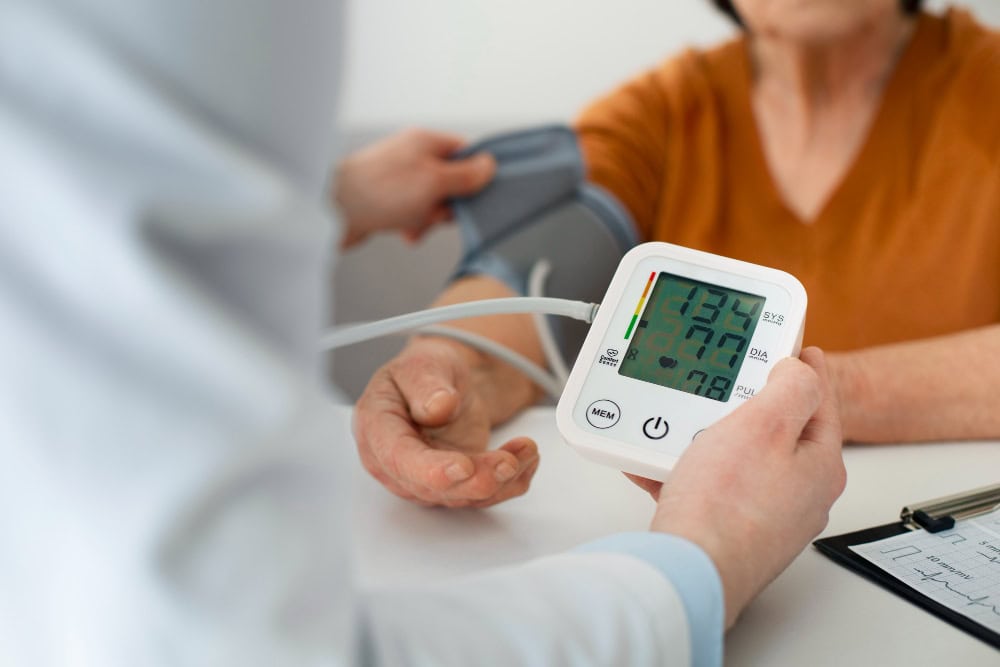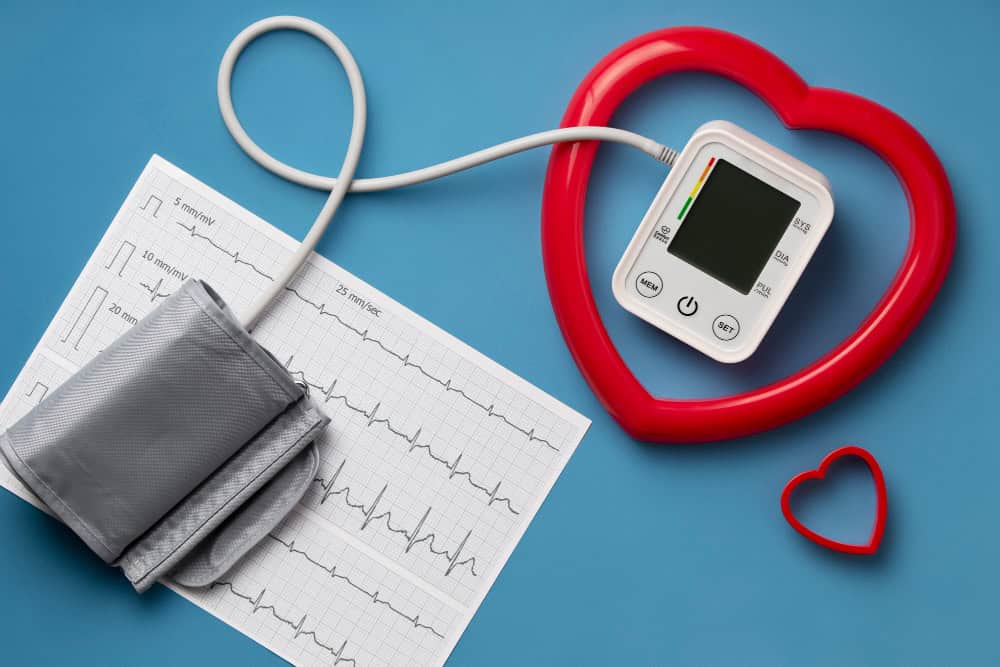
High blood pressure—or hypertension—was once seen as a concern mainly for older adults. However, the new 2025 blood pressure guidelines from the American Heart Association (AHA) and American College of Cardiology (ACC), released after eight years, highlight that heart risks can begin as early as the 20s and 30s [1], shifting the focus for young adults from reactive care to more preventive and personalized interventions.
Track your numbers with timely monitoring.
Key Points In The New Blood Pressure Guidelines

1. In the new blood pressure guidelines, the categories remain the same—
– Normal (<120/80 mm Hg)
– Elevated (120-129/<80 mm Hg)
– Stage 1 (130-139/80-89 mm Hg)
– Stage 2 (>140/90 mm Hg)
2. The guideline now focuses more on early action and long-term risk evaluation, especially for young adults. One of the major shifts is the use of the PREVENT™ Calculator, which estimates long-term (10 to 30 years) risks—not just of heart disease and stroke, but also of kidney health and cognitive issues. This means that even slightly elevated blood pressure is now taken seriously if your long-term risks are high.
3. Adults with high blood pressure should aim for a systolic blood pressure of 130 mm Hg or below, ideally 120 mm Hg. And they should also have their blood pressure measured at least once a year.
4. Lifestyle changes, like limited alcohol intake, increased physical activity, better stress management, and reduced sodium consumption (~1,500 mg/day), were suggested. But if elevated blood pressure levels persist after three to six months of lifestyle changes, then medications are suggested to be started earlier.
5. In case someone has a reading above 180/120 mm Hg of high blood pressure, they should seek advice from their clinician urgently if they face symptoms like chest pain, breathlessness, speech impairment, or paralysis.
6. A tailored approach was suggested in the guideline for individuals with additional risk factors like obesity, a high PREVENT™ score, or high blood pressure during pregnancy. [2]
Why These Changes Matter For Your Heart?

High blood pressure is a common risk factor for heart disease. A little effort to manage your blood pressure can go a long way in reducing your risk of heart disease and stroke, which are one-third of the leading causes of death in India [3]. These new BP guidelines help prevent heart failure, strokes, heart attacks, kidney issues, and even cognitive decline.
Take control, not just for yourself but also for your community. At Tata 1mg, we bring you practical tips on diet, exercise, lifestyle changes, early warning signs, and preventive care that can truly make a difference in keeping your heart strong.
Take a pledge to protect your heart health today.
What Can You Do Today?

– Track your BP regularly at home, following AHA-recommended measurement techniques to avoid misdiagnosis.
– Follow heart-healthy lifestyle habits: prioritize a DASH-style diet, engage in regular exercise, reduce sodium intake, moderate alcohol intake, manage stress, and get quality sleep.
– Use the PREVENT™ calculator (if available) or consult your doctor to understand your individualized heart and brain health risk.
– If your BP remains elevated, don’t wait—consider a timely medication discussion with your doctor, as recommended for younger adults when lifestyle changes aren’t sufficient.
Final Takeaway
The new blood pressure guidelines shift us from a high number of treatments to a more preventive approach. By early lifestyle changes and long-term risk assessment, one can aim to protect their heart health far earlier than before. Heart health is not built in a day – it is built each day. These new guidelines remind us that prevention is powerful and protecting your heart starts with the choices you make today.
References
1. McCarthy CP, McEvoy JW, Cluett JL. Implementing the 2025 Guideline for the Prevention, Detection, Evaluation, and Management of High Blood Pressure in Adults: Leveraging Evidence to push the boundaries of Clinical care. Hypertension. August 2025. doi:10.1161/hypertensionaha.125.25418
2. McCarthy CP, Bruno RM, Rahimi K, Touyz RM, McEvoy JW. What is new and different in the 2024 European Society of Cardiology Guidelines for the Management of Elevated Blood Pressure and Hypertension? Hypertension. 2024;82(3):432-444. doi:10.1161/hypertensionaha.124.24173
3. World Health Organization: Hypertension in India
https://www.who.int/india/health-topics/hypertension
Recommended Reads:
The Hidden Threat: How Stress and Microplastics Are Fueling Silent Heart Attacks
Why Are Indians at a Higher Risk of Heart Disease?
FAQs
Q. Is 140/90 considered normal BP?
No, 140/90 is not considered normal BP. According to the new blood pressure guideline, it is stage 2 hypertension, which means your blood pressure is high and may require both medication and lifestyle changes to reduce cardiovascular risks.
Q. What are the AHA’s new blood pressure guidelines for 2025?
The new blood pressure guidelines keep the same blood pressure categories but point towards the risk of more young adults having high blood pressure, and the update also aimed to encourage lifestyle changes, earlier detection, and treatment before it becomes serious.
Q. Can lack of sleep raise blood pressure?
Yes, when you don’t get enough quality sleep, your body produces stress hormones, and that causes your blood vessels to tighten, which makes your heart pump harder and increases your blood pressure.
(The article is written by Sneha Jajoo, Intern, Clinical Health & Content, and is reviewed by Dr.Subita Alagh, Assistant Team Lead, Disease Content.)